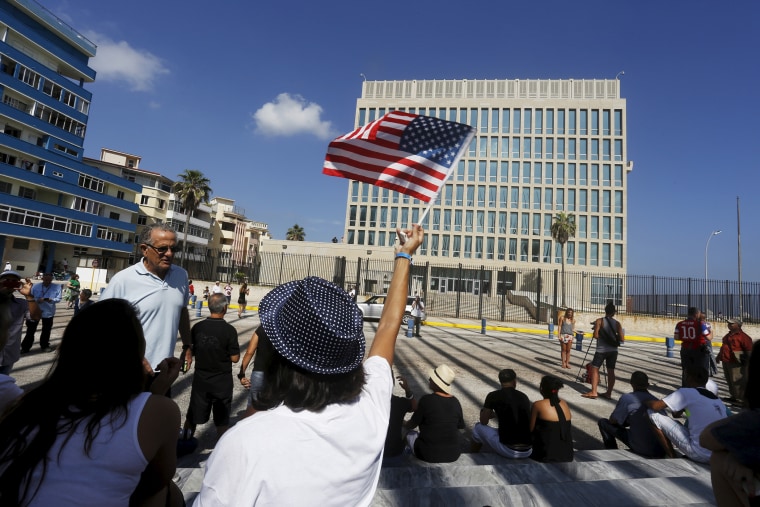HAVANA, Cuba — Yoanny Amaro says she is optimistic that the upcoming U.S. embassy opening will bring improvements in commerce, international relations and on a personal level, easier ties between Cubans here and their loved ones in the U.S.
But what looms large for the 42-year-old orthodontist and dental implant specialist is whether better U.S.-Cuba relations will eventually translate to an improved local economy — and more money in her extremely stretched paycheck.
"Our biggest problem right now is our salary compared to the prices we have to pay," she said. Amaro said that she and her husband, an engineer, have incomes significantly more than the average of about $20 a month in 2013 — yet most of their combined income goes to food. "Even for those of us professionals who have made big sacrifices, we are not compensated."
Many Cubans on the street were candid about the biggest issue they say they face — their inability to afford the steep prices for basic items and their desire that changes eventually lead to more money in their pocketbooks.
"I would like to remain living here — there is no country like this one," said a 31-year-old sales clerk who only wanted to give her first name, Yaniri. But she worries about the future, she said, as she looked anxiously at her 7-year-old son. "Up to now we haven't been advancing enough."
Yaniri's husband has been working in Miami for the past three years and, as is the case with many families, he sends money to supplement their income. Yaniri's friend, 28-year-old Melia, says she plans to join her father, who moved to Naples, Florida, and has a job installing air conditioners. "The majority of us wouldn't leave if we had money. We leave because of necessity," Melia said.
Satisfaction in other fronts
In front of the Cubacel phone company offices, a 43-year-old man who also only wanted only his first name used, Cesar, reflected on the state of things.
"It's the economic part that hits us hard," he said, complaining that he doesn't understand why the government marks up basic products. "It shouldn't be that the state buys a pen and charges us 200% more to buy it." Yet he was quick to point out what he credited the government for — low crime rates, and good education and health care.
"Kids can walk out on the street, nothing happens. If a kid falls from a bike, the hospital takes care of you without asking you about insurance. "Eso es real [that is the truth]," he said. He also praised the education system and the country's teachers — "Estan haciendo cosas del corazón, y eso no tiene precio [They're doing things from the heart, and that doesn't have a price]," he said, extolling the dedication of many of the teachers despite their low pay.
"In general, the system is designed for people's well-being," said Amaro, the orthodontist, praising the chances to get a good education. "I have lived that," she added.
Read more at NBCNews.com.
